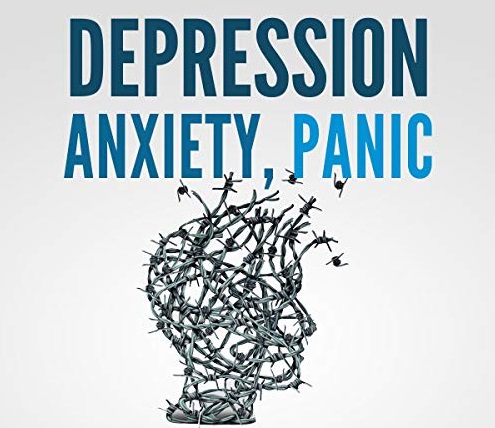
Perfectionism and anxiety: The terrible duo making lives a living hell. How to let go of that obsession of always wanting to be perfect? Challenge accepted!
In the pursuit of perfection, many find themselves trapped in a cycle of anxiety and self-doubt. Perfectionism, characterized by an unrelenting desire to achieve flawless results, often leads to heightened stress levels and a diminished sense of self-worth. Coupled with anxiety, this toxic duo can make life feel like an endless struggle, but breaking free from their grip is possible with the right strategies and mindset shifts.
Understanding Perfectionism and Anxiety
Perfectionism stems from a fear of failure and a need for external validation. Those afflicted by it set impossibly high standards for themselves, constantly striving for flawlessness in every aspect of their lives. However, this relentless pursuit often results in chronic stress, procrastination, and feelings of inadequacy.
Anxiety exacerbates the effects of perfectionism, magnifying worries about making mistakes or falling short of expectations. The fear of failure becomes paralyzing, preventing individuals from taking risks or pursuing their goals. As a result, they may experience symptoms such as racing thoughts, difficulty concentrating, and physical tension.
The Consequences of Perfectionism and Anxiety
Perfectionism and anxiety can take a significant toll on mental and physical well-being. Chronic stress, a hallmark of both conditions, can lead to burnout, insomnia, and even depression. Relationships may suffer as individuals become overly critical of themselves and others, unable to accept imperfections or setbacks gracefully.
In the workplace, perfectionism can hinder productivity and innovation, as individuals prioritize avoiding mistakes over taking calculated risks. This fear of failure stifles creativity and prevents people from reaching their full potential. Additionally, the constant pressure to excel can strain interpersonal relationships and contribute to a toxic work environment.

Letting Go of Perfectionism: A difficult Challenge to break free
Breaking free from the grip of perfectionism and anxiety requires a combination of self-awareness, self-compassion, and practical strategies. Here are some steps to begin the journey towards letting go of perfectionism:
- Challenge Unrealistic Standards: Recognize that perfection is unattainable and that mistakes are a natural part of the learning process. Set realistic goals and celebrate progress rather than fixating on outcomes.
- Practice Self-Compassion: Treat yourself with the same kindness and understanding you would offer a friend. Acknowledge your efforts and achievements, no matter how small, and forgive yourself for perceived shortcomings.
- Reframe Failure as Growth: View setbacks as opportunities for learning and personal growth rather than evidence of inadequacy. Embrace a growth mindset, understanding that resilience is built through adversity.
- Set Boundaries: Learn to prioritize self-care and establish boundaries to protect your well-being. Say no to unrealistic demands and delegate tasks when necessary to avoid overextending yourself.
- Cultivate Mindfulness: Practice mindfulness techniques such as deep breathing, meditation, or yoga to cultivate present-moment awareness and reduce stress. Focus on the here and now rather than dwelling on past mistakes or future worries.
- Seek Support: Don’t hesitate to reach out to friends, family, or a therapist for support. Sharing your struggles with others can provide perspective, validation, and encouragement on your journey towards self-acceptance.
- Celebrate Imperfection: Embrace the beauty of imperfection and cultivate gratitude for the unique qualities that make you who you are. Remember that life is messy, and growth often arises from the unexpected twists and turns along the way.
Perfectionism and anxiety can indeed make lives feel like a living hell, but they don’t have to define our existence. By challenging the obsession with perfection and adopting a more compassionate and resilient mindset, we can break free from their grip and embrace a life filled with authenticity, joy, and fulfillment. It’s a challenge worth accepting—one that leads to greater self-awareness, resilience, and ultimately, a deeper sense of peace.


How cultivating self-intimacy contributes greatly into the development of more robust and healthier relationships long term.
Self-intimacy, also known as self-awareness and a deep understanding of oneself, plays a crucial role in fostering healthier relationships. When individuals cultivate a strong sense of self-intimacy, they bring a level of authenticity, emotional intelligence, and resilience to their interactions with others. Let’s delve deeper into how self-intimacy contributes to healthier relationships:

- Emotional Regulation:
• Understanding Emotions: Self-intimacy involves recognizing and understanding one’s own emotions. Individuals who are in touch with their feelings are better equipped to express themselves accurately and manage their emotional responses effectively.
• Emotional Resilience: A person with self-intimacy has developed emotional resilience, allowing them to navigate challenges and setbacks without being overwhelmed. This resilience prevents emotional reactions from negatively impacting relationships. - Authentic Communication:
• Openness and Honesty: Self-intimacy encourages authenticity and honesty in communication. Individuals who are comfortable with themselves are more likely to express their thoughts and feelings openly, fostering trust and transparency in relationships.
• Vulnerability: Being intimate with oneself enables individuals to embrace vulnerability. This willingness to share personal experiences and feelings deepens connections and creates a more profound sense of intimacy with others. - Empathy and Understanding:
• Understanding Others: When individuals have a deep understanding of their own emotions, they are more empathetic toward the experiences of others. This empathy strengthens connections by fostering a genuine understanding and appreciation of different perspectives.
• Conflict Resolution: Self-intimacy allows individuals to approach conflicts with a calm and understanding mindset. Rather than reacting impulsively, they can engage in constructive dialogue, seeking resolutions that consider the needs and feelings of everyone involved. - Setting Boundaries:
• Clear Self-Identity: Self-intimacy involves knowing one’s values, preferences, and limits. This clarity enables individuals to establish and communicate healthy boundaries within relationships, promoting mutual respect and understanding.
• Respecting Others’ Boundaries: Individuals with self-intimacy are more likely to respect the boundaries of others, creating an environment where each person feels safe and understood. - Continuous Personal Growth:
• Self-Improvement: Self-intimacy is an ongoing process that involves self-reflection and a commitment to personal growth. Individuals who prioritize their own development contribute positively to relationships by bringing a sense of purpose and motivation to the partnership.
• Supporting Partner’s Growth: A person with self-intimacy is more likely to encourage and support the personal growth of their partner. This creates a dynamic where both individuals are evolving and thriving, leading to a more fulfilling and resilient relationship.

Recognizing the presence of post-traumatic relationship syndrome (PTRS) in established relationships is crucial, as it can offer insights into why couples who have endured past trauma may face challenges in being as open as those who haven’t experienced similar difficulties. The absence of genuine communication further compounds these issues, making it challenging to articulate one’s desires or needs to a partner, consequently influencing self-perception within the current relationship. The famous adage “it takes two to tango” is pertinent in this context, emphasizing that positive changes require the joint effort of both individuals, rather than one person unilaterally driving transformation in the relationship.
In essence, the establishment of self-intimacy becomes the cornerstone for fostering healthier relationships, facilitating emotional regulation, fostering authentic communication, nurturing empathy, defining boundaries, and promoting continual personal growth. As individuals delve deeper into understanding themselves, they augment their ability to engage meaningfully and constructively with others.

Key strategies to maintaining proper mental health when being a caregiver: Anxiety can hit you at anytime, anywhere and frequently!

Adult caregivers exemplify remarkable selflessness in their commitment to loved ones, expressing unwavering dedication through sacrifice. They prioritize their loved ones’ needs above their own, demonstrating boundless compassion and empathy. Driven by a deep sense of responsibility and love, caregivers navigate challenges with grace, willingly setting aside personal desires for the well-being, safety, and happiness of their loved ones. Despite facing physical and emotional exhaustion, they give generously to enhance the quality of life, extending their selflessness beyond routine caregiving tasks. This profound expression of love showcases the depth of their compassion and the extraordinary lengths they go for their loved ones’ comfort and happiness.

Caregiving, while a noble and fulfilling role, can also come at a price, particularly in terms of anxiety. The responsibilities and challenges associated with caregiving can contribute to heightened anxiety levels for caregivers. Caregiving demands significant emotional, physical, and sometimes financial investments. The constant worry about the well-being of a loved one, coupled with the challenges of providing care, can lead to chronic stress and anxiety. Caregivers often face complex medical or emotional situations, difficult decisions, and the ongoing pressure to meet the needs of their loved ones. Moreover, caregivers may feel isolated or unsupported, lacking a robust network to share their experiences or seek assistance. The emotional toll of witnessing the suffering or decline of a loved one can be overwhelming, contributing to a sense of helplessness and anxiety. Below are some strategies that can help adult caregivers cope with anxiety and still keep their sanity:
- Self-Care Routine:
• Establish a consistent self-care routine that includes activities you enjoy, such as exercise, reading, or taking a leisurely walk.
• Prioritize sufficient sleep to ensure you are well-rested and better equipped to handle stress. - Healthy Lifestyle Choices:
• Maintain a balanced diet with nutritious food to support physical and mental well-being.
• Limit caffeine and sugar intake, as they can contribute to increased anxiety. - Mindfulness and Relaxation Techniques:
• Practice mindfulness meditation or deep-breathing exercises to stay present and calm the mind.
• Consider activities like yoga or tai chi that promote relaxation and stress reduction. - Set Realistic Expectations:
• Establish achievable goals and be realistic about what you can accomplish.
• Break larger tasks into smaller, more manageable steps to reduce feelings of overwhelm. - Effective Time Management:
• Prioritize tasks and organize your schedule to avoid unnecessary stress.
• Delegate responsibilities when possible, recognizing that you don’t have to do everything on your own. - Seek Support:
• Connect with friends, family, or support groups to share your feelings and experiences.
• Consider professional counseling or therapy to have a safe space to discuss and manage anxiety. - Boundaries:
• Set clear boundaries between work and personal life to prevent burnout.
• Learn to say no when necessary and communicate your limits to others. - Positive Affirmations:
• Replace negative thoughts with positive affirmations to cultivate a more optimistic mindset.
• Focus on your strengths and acknowledge your accomplishments, no matter how small. - Stay Informed:
• Educate yourself about anxiety, its triggers, and coping mechanisms to better understand and manage your own feelings.
• Attend workshops or seek resources on stress management techniques. - Professional Help:
• If anxiety becomes overwhelming, consider seeking help from a mental health professional.
• Therapy or counseling can provide valuable tools and strategies to navigate and overcome anxiety.
Remember, everyone’s experience with anxiety is unique, and finding what works best for you may involve a combination of these strategies. It’s essential to prioritize your mental health and well-being as a caregiver. While caregiving is a deeply rewarding experience, the associated challenges, demands, and emotional strain can take a toll on caregivers, potentially leading to anxiety. It is essential for caregivers to recognize the importance of self-care, seek support, and prioritize their own mental health to effectively navigate the challenges that come with caregiving.
Learn More